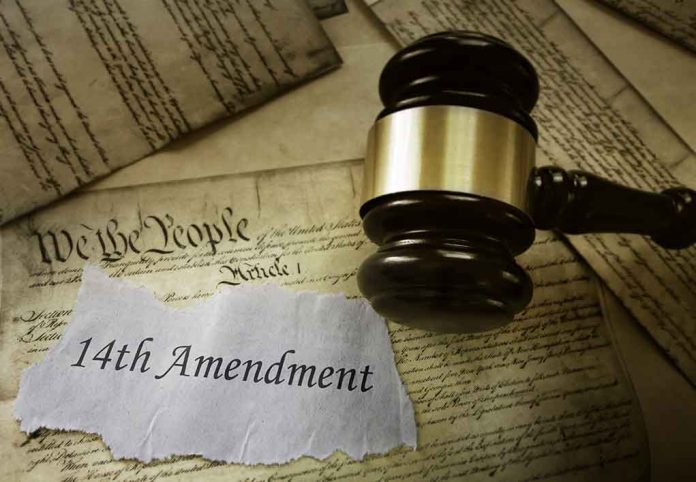
Stephen Miller’s critique of birthright citizenship challenges the 14th Amendment’s current interpretation, urging a focus on its original intent to protect descendants of American slaves.
Key Takeaways
- Stephen Miller, a key adviser to President Trump, advocates for a reinterpretation of the 14th Amendment regarding birthright citizenship.
- Miller argues the amendment’s original intent was to grant citizenship to the children of freed slaves, not to the offspring of non-citizen parents.
- Economic and national security concerns are central to Miller’s argument against automatic birthright citizenship.
- President Trump’s executive order denying citizenship to children born on U.S. soil to non-citizen parents faces legal challenges and a pending Supreme Court decision.
Stephen Miller’s Role and Influence
Stephen Miller has been a steadfast adviser to President Trump, serving as his Deputy Chief of Staff, among other roles. Known for his hardline stance and influential voice in immigration policy, Miller’s footprint is evident in many of Trump’s key initiatives. In discussing military matters or advocating for potent reforms, his voice has been a guiding one within the administration, showcasing his importance, though not holding a cabinet-level title.
Miller’s influence extends beyond policy-making into shaping the narrative around Trump’s immigration reforms. His involvement in controversial immigration strategies, like deportation initiatives and challenges to Mexican drug cartels’ status, underscores his persistent presence in pivotal decision-making arenas. His ability to amplify Trump’s voice, especially on issues like birthright citizenship, reflects his critical role in pushing a new vision for American citizenship policy.
Challenging the Current Interpretation of the 14th Amendment
Birthright citizenship, as defined under the 14th Amendment, has become a focal point for debate, primarily due to Stephen Miller’s reevaluation of its intended purpose. Historically, the 14th Amendment was adopted to address the rights of former slaves post-Civil War. Over time, its application expanded to include automatic citizenship for children born to non-citizen parents in the U.S.
Miller views this as a deviation from the amendment’s original spirit, arguing that its current interpretation poses risks to national security and the economy. The executive order spearheaded by President Trump, denying birthright citizenship to children of non-citizens, highlights the administration’s efforts to correct what it sees as a historical oversight. This stance, however, is contested by a coalition of Democratic state attorneys general and immigrant rights groups, who assert it contravenes constitutional principles.
Implications and Legal Challenges Ahead
The implications of Miller’s advocacy against birthright citizenship are profound, both politically and constitutionally. While the executive branch’s interpretation seeks to refine citizenship criteria, opponents argue it undermines decades of legal precedent, including the Supreme Court’s ruling in United States v. Wong Kim Ark that upheld birthright citizenship for children of non-citizen parents in 1898. The upcoming Supreme Court hearing will be pivotal in determining the trajectory of this contentious issue.
“Birthright citizenship” is the biggest, costliest scam in financial history. An illegal alien can come here nine months pregnant or on a tourist visa —nine months pregnant — have a baby, that baby is then declared an automatic citizen, which then entitles the entire family to come here and live here and every one of them get welfare. Yes, they can get unlimited welfare, applying as the custodian of this citizen — so called — child — the biggest financial rip-off of Americans in history, not to mention the fact that it’s the number one magnet for illegal immigration and invasion,” Miller explains.
Anticipation builds as the Supreme Court’s decision approaches, which will inevitably shape the future of birthright citizenship in America. Depending on the outcome, legislative and public discourse will likely intensify, sparking a reevaluation of American identity and the meaning of citizenship. As Miller and Trump push for reforms, the nation remains poised for a potential reshaping of its foundational citizenship laws.





